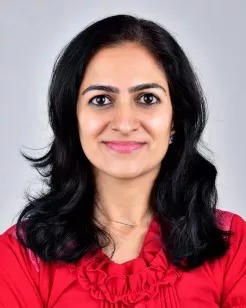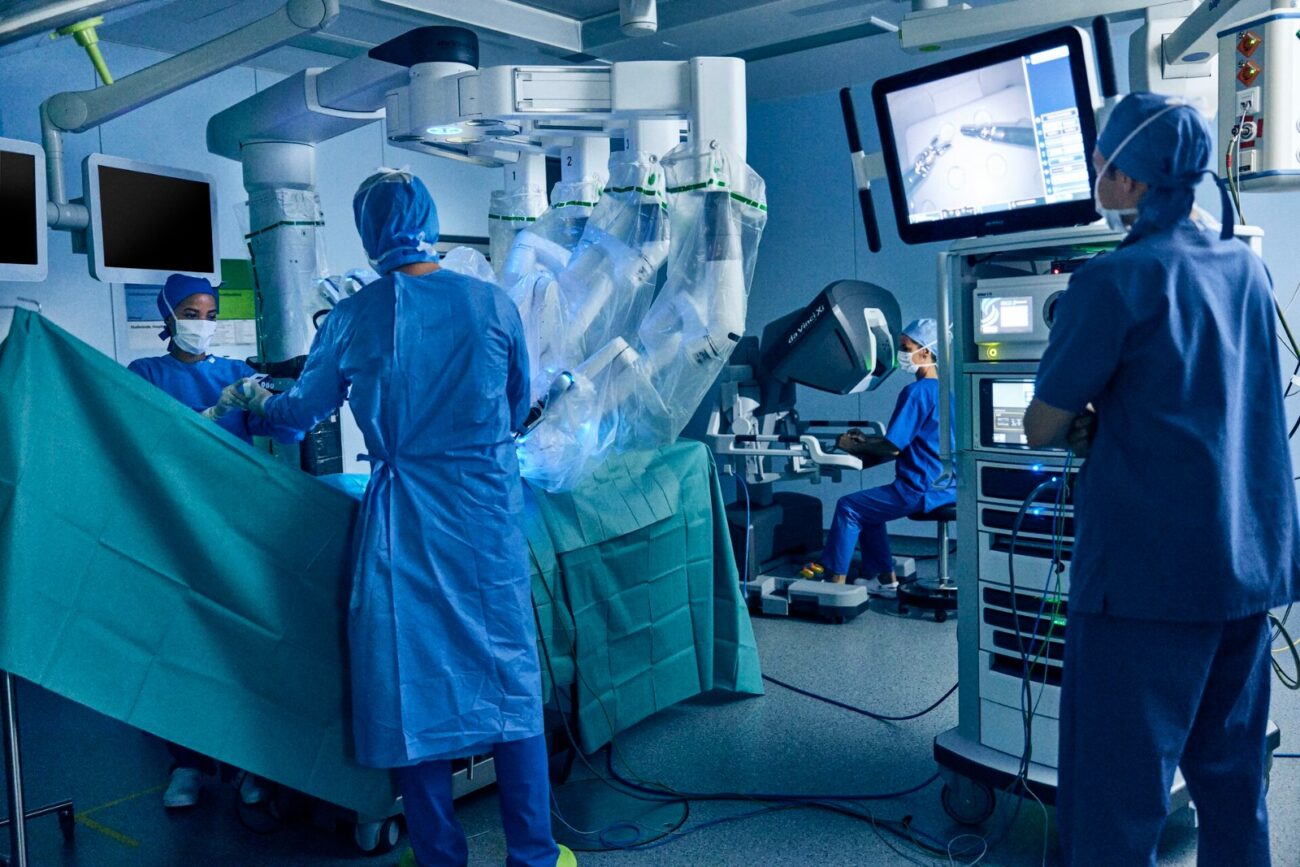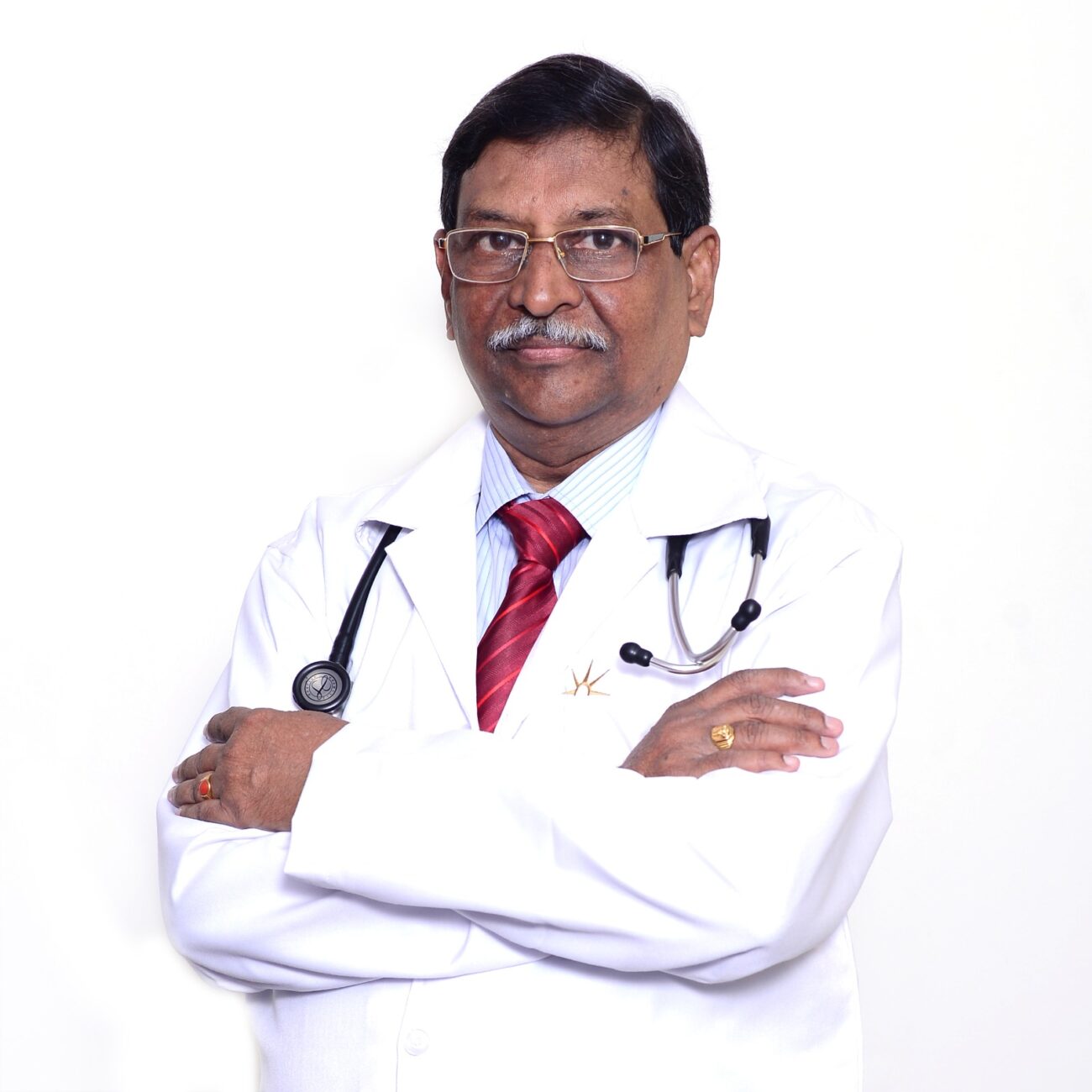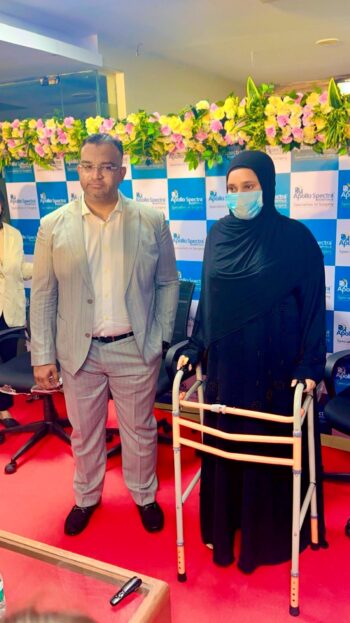Fortis Hospital Bannerghatta Road pioneers India’s first high cervical spinal cord stimulation, a breakthrough treatment for Parkinson Plus Syndrome
Wheelchair-bound 65-year-old French patient gets a new lease of life, walks after 4 months In yet another clinical achievement, Fortis Hospital Bannerghatta Road achieved a groundbreaking milestone by performing India's first high cervical spinal cord stimulation
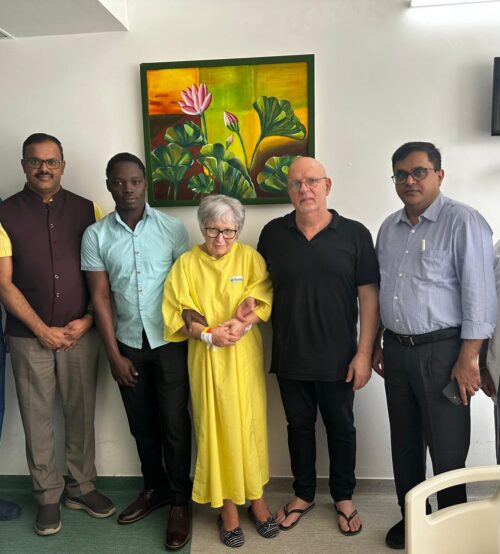
Wheelchair-bound 65-year-old French patient gets a new lease of life, walks after 4 months
In yet another clinical achievement, Fortis Hospital Bannerghatta Road achieved a groundbreaking milestone by performing India’s first high cervical spinal cord stimulation on a 65-year-old patient from France, suffering from Parkinson’s plus syndrome, a condition with limited surgical options. She was treated under Dr Raghuram G – Additional Director of Neurosurgery and Dr Guruprasad Hosurkar – Additional Director of Neurology and was discharged within 10 days of surgery and rehabilitation.
After enduring four years of distress, Patient Mrs Mary (Name changed) experienced numerous co-morbidities including stiffness in the legs, initial difficulty in walking, shuffling and freezing, poor control of movement in upper limbs, weakness, depression, loss of bladder control, speech impediments and swallowing difficulties. She was wheelchair-bound for 8 months. Despite visiting numerous hospitals in Africa, England, and Paris, her condition did not improve. Upon her arrival at Fortis Hospital Bannerghatta Road, doctors meticulously evaluated her condition and diagnosed her with Parkinson’s Plus Syndrome. Also known as atypical parkinsonism, this is a group of brain disorders that have symptoms similar to Parkinson’s disease but with some distinct differences, such as early-onset dementia, hallucinations, problems with balance, difficulty moving, Involuntary shaking or movement, and other symptoms. Unlike Parkinson’s disease, these conditions don’t respond well to typical treatments. Acknowledging the severity of her condition, the doctors opted for an innovative approach – high cervical spinal cord stimulation, which is the first in India.
Explaining the procedure, Dr Raghuram G – Additional Director, Neurosurgery, Fortis Hospital, Bannerghatta Road Bengaluru, said, “Our approach involved an initial trial surgery utilizing an external pacemaker. This step was crucial as it allowed us to closely monitor the patient’s response to the stimulation. Following this trial, we observed promising results, including improved mobility and reduced symptoms. Encouraged by these positive outcomes, we proceeded with the spinal cord stimulation surgery, which involved precise placement of electrodes along the spinal cord to modulate neural activity and alleviate symptoms associated with Parkinson’s plus syndrome. Spinal cord surgeries are different because it involves placement of an electrode on the spinal cord chosen for a particular condition. It is an epidural electrode and is not put within the spinal cord. Unlike the deep brain stimulation electrode which is placed within the brain.”
Dr Guruprasad Hosurkar – Additional Director Neurology, Fortis Hospital, Bannerghatta Road Bengaluru said, “Since Deep Brain Simulation surgery was not an ideal option for the patient’s condition we decided to go ahead with Spinal cord stimulation surgery. We decided to place the electrode at the high cervical cord level to improve not only her gait but also her upper limb, speech, bladder symptoms. herein small devices that conduct electricity are placed near the spinal cord. These devices emit electrical signals that modulate networks in the spinal cords which has connections to the brain for mobility and coordination. For our patient, this treatment offered hope in alleviating the challenging symptoms of Parkinson’s plus syndrome.”
Following the successful surgery, the patient was discharged after ten days and underwent a rehabilitation program to enhance her mobility. She experienced significant improvements in her condition, with minimal support required for walking, near elimination of bladder symptoms, enhanced speech, and improved swallowing ability.
Mr. Akshay Oleti, Business Head, Fortis Hospitals Bengaluru, said, “The achievement by Dr Guruprasad, Dr Raghuram and his team highlights Fortis’s commitment to providing advanced medical care and pioneering treatments to patients worldwide. It represents a significant milestone in the field of neurosurgery and offers hope to individuals battling this challenging condition.”



